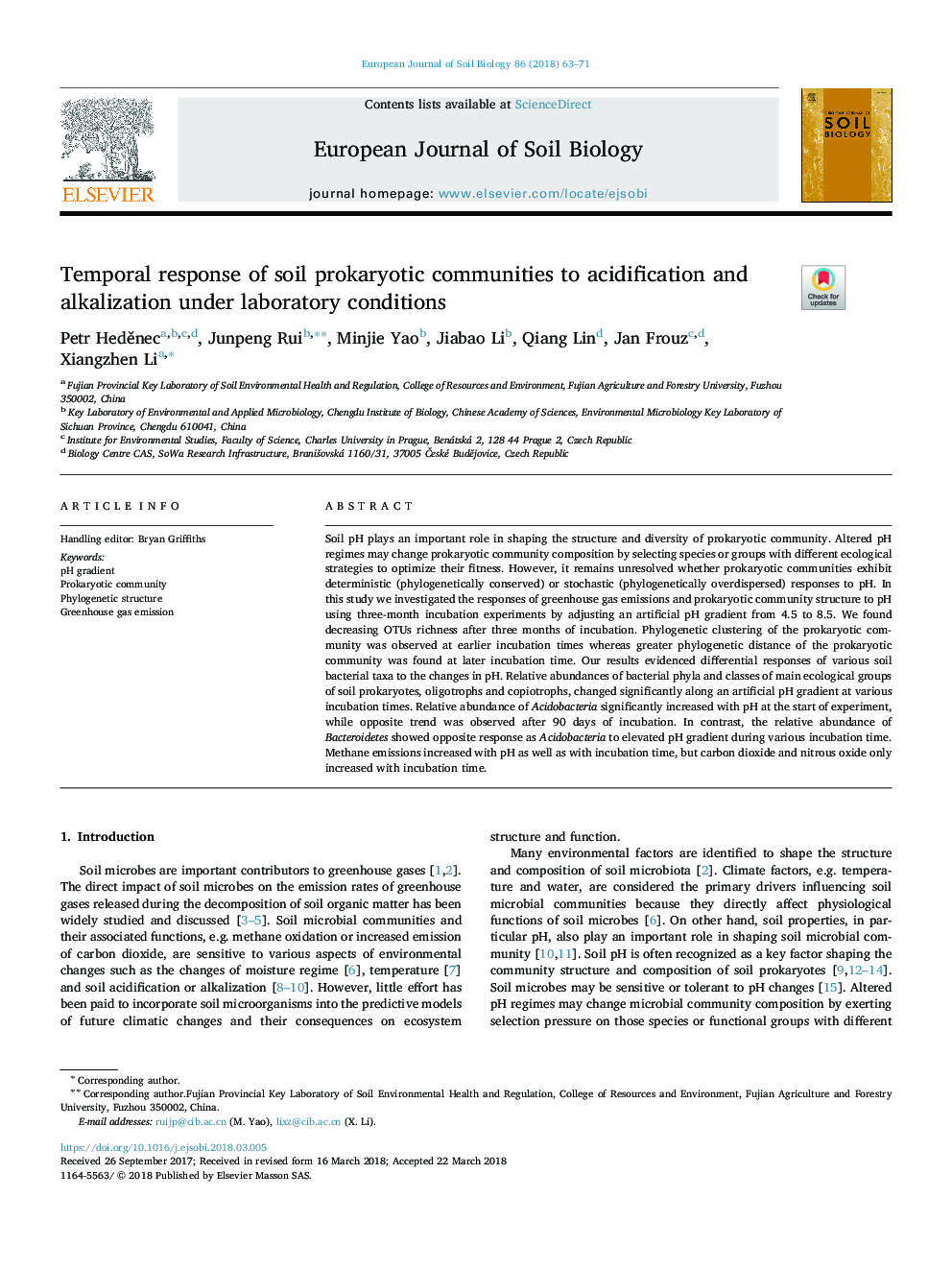| Article ID | Journal | Published Year | Pages | File Type |
|---|---|---|---|---|
| 8848374 | European Journal of Soil Biology | 2018 | 9 Pages |
Abstract
Soil pH plays an important role in shaping the structure and diversity of prokaryotic community. Altered pH regimes may change prokaryotic community composition by selecting species or groups with different ecological strategies to optimize their fitness. However, it remains unresolved whether prokaryotic communities exhibit deterministic (phylogenetically conserved) or stochastic (phylogenetically overdispersed) responses to pH. In this study we investigated the responses of greenhouse gas emissions and prokaryotic community structure to pH using three-month incubation experiments by adjusting an artificial pH gradient from 4.5 to 8.5. We found decreasing OTUs richness after three months of incubation. Phylogenetic clustering of the prokaryotic community was observed at earlier incubation times whereas greater phylogenetic distance of the prokaryotic community was found at later incubation time. Our results evidenced differential responses of various soil bacterial taxa to the changes in pH. Relative abundances of bacterial phyla and classes of main ecological groups of soil prokaryotes, oligotrophs and copiotrophs, changed significantly along an artificial pH gradient at various incubation times. Relative abundance of Acidobacteria significantly increased with pH at the start of experiment, while opposite trend was observed after 90 days of incubation. In contrast, the relative abundance of Bacteroidetes showed opposite response as Acidobacteria to elevated pH gradient during various incubation time. Methane emissions increased with pH as well as with incubation time, but carbon dioxide and nitrous oxide only increased with incubation time.
Related Topics
Life Sciences
Agricultural and Biological Sciences
Soil Science
Authors
Petr HedÄnec, Junpeng Rui, Minjie Yao, Jiabao Li, Qiang Lin, Jan Frouz, Xiangzhen Li,
